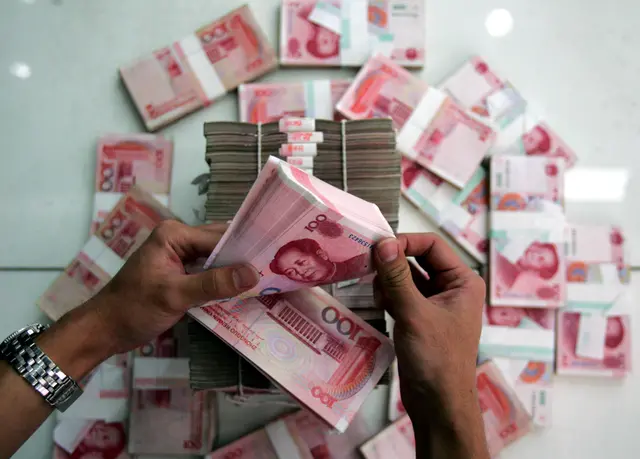The Treasury Department for the final time during President Barack Obama’s tenure declined to label China a currency manipulator, in an implicit rejection of Republican nominee Donald Trump’s hard-line approach to the world’s second-biggest economy.
The Obama administration added Switzerland to a currency watch list that already included China, Japan, Germany, South Korea and Taiwan,according to a semiannual report on global foreign-exchange policies from the Treasury. However, it found that no major trading partner met the legal definition of a currency manipulator, and the U.S. said China’s recent efforts to prop up the yuan were preventing a rapid depreciation that would hurt the global economy.
China was found to meet only one of three criteria used to determine the watch list, compared with two of three in April. If China still meets only one condition in the next report, it could be removed from the list.
Applying the manipulator label to China would represent a major shift from U.S. practice over more than two decades, and would risk provoking retaliation. The last time the U.S. designated China a currency manipulator was in 1994, when Bill Clinton was president. Under a 1988 law, the Treasury is required to assess whether major trading partners game their currencies to prevent balance-of-payments adjustments or to gain an unfair trade advantage.
Both U.S. presidential candidates have signaled tougher stances on China ahead of next month’s election. Trump has come out more aggressively against the Asian nation.“They are a manipulator, grand master level,” he said in an economic policy speech last month. “I am going to instruct my Treasury secretary to label China a currency manipulator and to apply tariffs over any country that devalues its currency to gain an unfair advantage over the United States.”
Trump has also promised to impose a 45 percent tariff on non-oil exports from China.
Clinton’s Concern
Democratic nominee Hillary Clintonhas said she wants to prevent countries like China from abusing global trade rules by strengthening enforcement. Like Trump, she opposes a trade deal with Pacific Rim nations signed by Obama, and she has expressed concern about currency manipulation, without specifying any countries.
Jacob J. Lew, the current U.S. Treasury secretary, was deputy secretary of state under Clinton when she served in the Obama administration.
The Treasury created a newmonitoringlist in April after Congress passed a law requiring closer scrutiny of foreign-exchange regimes. Treasury officials developed three criteria to decide if countries are being unfair: an economy having a trade surplus with the U.S. above $20 billion; having a current-account surplus amounting to more than 3 percent of its
gross domestic product; and one that repeatedly depreciates its currency by buying foreign assets equivalent to 2 percent of output over the year.
Meeting all three would trigger action by the president to enter discussions with the country and seek potential penalties.
China retains a significant trade surplus with the U.S., and greater transparency from the Chinese government of its foreign-exchange goals would bolster the currency regime’s credibility, the Treasury said. But its current-account surplus narrowed to 2.4 percent of GDP for the 12 months through June, putting it below the threshold for the watch list.
Rather than trying to weaken the yuan to gain an advantage, China sold an estimated $570 billion in foreign-exchange assets from August 2015 to August 2016 in an effort to prevent a rapid decline in the currency, the Treasury said. The yuan has declined about 3.5 percent against the dollar in 2016.
Japan, Germany and South Korea were flagged because of their trade and current-account surpluses.
While Japan hasn’t intervened in the yen in almost five years, Japanese officials have persistently made public comments “aimed at restraining yen appreciation,” the Treasury said, noting that the dollar-yen exchange market is functioning smoothly.
Germany has the largest nominal current-account surplus in the world, the Treasury said. Some of that saving could be used to boost domestic demand and support the rebalancing of the global economy, according to the department.
The Treasury added Switzerland to its monitoring list because its trade with the U.S. was large enough to label it a major trading partner as of June, and its current-account surplus and currency intervention met the thresholds. At the same time, Switzerland’s bilateral trade surplus with the U.S. is below the trigger level for the watch list.
Taiwan remained on the list because of persistent intervention to weaken its currency, and a current-account surplus, according to the Treasury.
(BLOOMBERG)
 简体中文
简体中文

